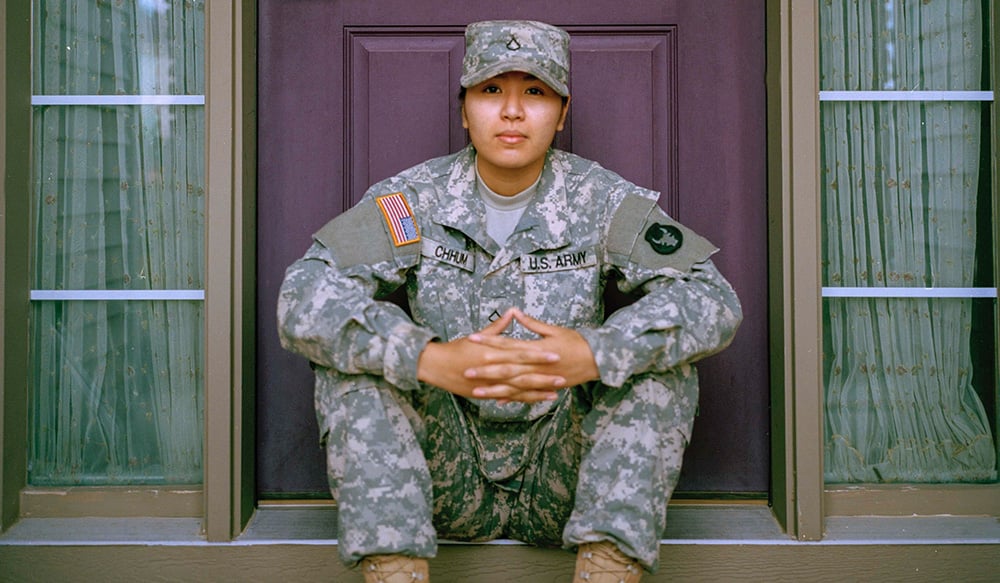
We're feeling grateful for all of the military service members who have put on their uniforms to protect the values the United States was built on. In honoring our military, we’d also like to explore an important topic that’s not discussed enough: food insecurity among our current military members and veterans, as well as their families.
The fact is military personnel dedicate their lives to protecting our country, but some current and former service members still worry about how they and their families will get their next meal. Let’s take a look at five surprising facts about hunger among our military, explore some contributing factors, and discuss what’s being done to reduce the problem:
- About 15 percent of military and veteran families face food insecurity. This means many military families are struggling to have consistent access to enough nutritious food to lead active, healthy lives.
- One-third of children at Department of Defense (DOD)-run schools on U.S. military bases are eligible for free or reduced lunches. Pentagon records show that this data translates to mean more than 6,500 children attending these schools during the 2018-2019 school year were coming from low-income military families. And at Fort Stewart in Georgia, the statistic jumps up to a staggering 65 percent.
- Data from the 2017 Census Bureau showed that more than 16,000 active-duty service members had received SNAP (Supplemental Nutrition Assistance Program) food stamps. SNAP is a federally funded government program that provides nutritious food assistance to low-income individuals and families based on income, resources, and size of household.
- Moreover, in 2018, a study showed that 1.5 million veterans live in a household that completely relies on SNAP to supplement their food intake.
- In 2016, families spent about $67 million in food stamps at commissaries—tax-free grocery stores on military bases.
Contributing Factors
Let’s take a look at some of the reasons why hunger is an issue among military families:
Salaries of enlisted service men and women
Those with pay grades E-1 (entry level enlisted pay) to E-5 make somewhere between $20,170 and $40,759 per year in basic pay, depending on their rank and length of service. This puts some military personnel close to the federal poverty line, particularly if they have multiple dependents, as base pay does not increase as a service member expands his or her family. These salary figures do not include additional allowances: Basic Allowance for Housing (BAH), Cost of Living Allowance (COLA), and Family Separation Allowance (FSH).
Cost of living
The state of California is home to the most active-duty and reserve members of the military in America, and many of them reside in areas like San Diego where the cost of living is high. Service members receive housing allowances depending on where they live, but basic pay depends on rank and remains the same no matter where one lives, so it still may not be enough to achieve financial stability—particularly for larger families.
Mental health issues
Common debilitating mental health problems like PTSD among veterans make it more difficult for those affected to hold down a job and be financially sound. Many veterans have trouble adapting back to civilian life when they return from being overseas, especially those who lack a support system from loved ones. It’s been reported that 27 percent of veterans in the wars in Iraq and Afghanistan have struggled to provide food for their families.
What’s Being Done
Fortunately, some policy changes aim to reduce hunger among military families. Here are a few ways that food insecurity among military personnel and their families may be reduced:
Basic pay is getting a boost
This year a 2.6 percent military pay raise was enacted across the board.
Increased assistance for military families
A new coalition formed with the help of the Military Family Advisory Network (MFAN) has made tackling military family food insecurity one of its primary missions. MFAN has been forming partnerships with a number of civilian community-based experts, including Feeding America, the Food Research & Action Center, the National WIC Association, and United Way, to decrease food insecurity among our military.
The Military Family Basic Needs Allowance
Nonprofit MAZON: A Jewish Response to Hunger has been leading the charge to push for new policy that would help bridge the gap for junior military families that are struggling financially by giving them a monthly allowance. The initiative, called the Military Family Basic Needs Allowance, is proposed to be included in the National Defense Authorization Act (NDAA) bill. Currently included in the House version of the bill but not the Senate version, the proposal has not yet been passed into law.
As awareness of hunger among the military increases and more assistance and services become available, it is our hope that food insecurity among our military will decrease. An increase in programming, outreach, and advocacy will help to ensure that our nation’s heroes are more easily able to get the nutritious food that they need to thrive.






